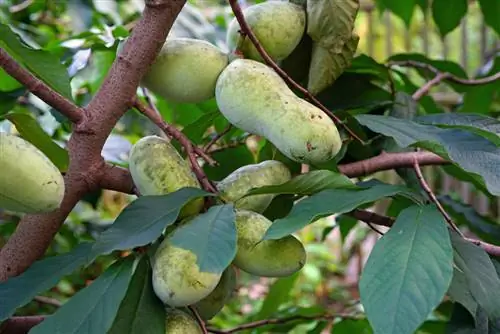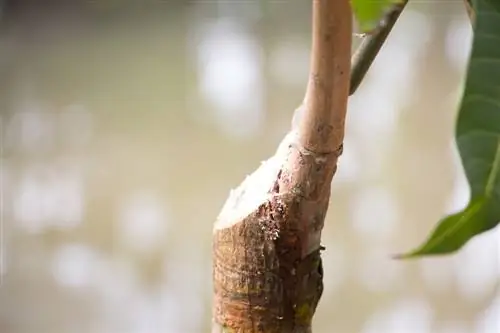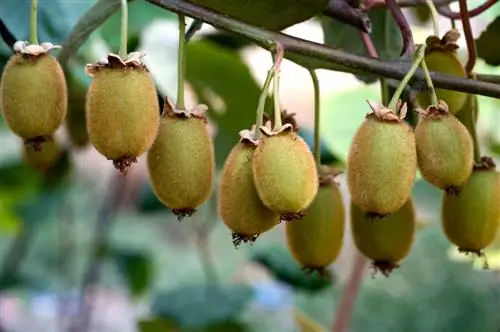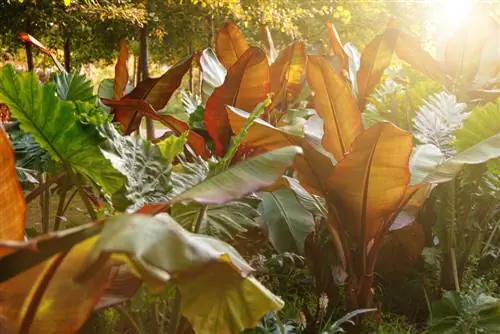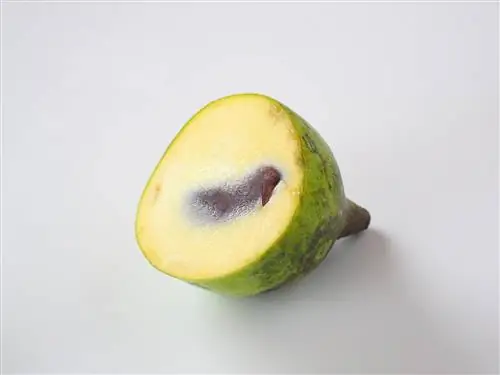- Author admin [email protected].
- Public 2023-12-25 17:45.
- Last modified 2025-06-01 06:02.
Every Indian banana receives a random, individual genetic mixture from the seed on the path of its life. It also affects the size and taste of the fruit. However, if we don't want to leave anything to chance, we have to refine the tree. Then it will produce fruit according to new specifications.
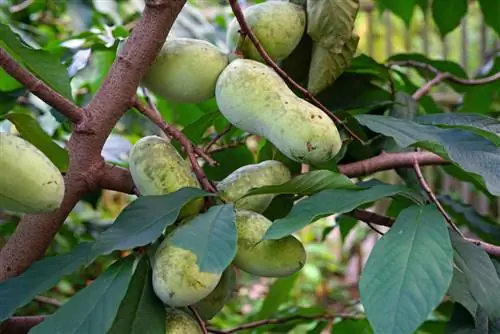
How do you refine an Indian banana?
To refine an Indian banana, you need a seedling as a base and a scion with desired properties. Using the chip method, you connect a chip-shaped branch (with a bud) of the scion to the bark of the seedling and fix it with a finishing tape (€6.00 at Amazon). As soon as the chip has grown, cut off the protruding part of the seedling.
Underlay
Only root runners or seedlings of your own species may be used as rootstock. Since sensitive roots in this tree species make it difficult to transplant root runners, seedlings are better suited as rootstock. They should be 1-2 years old. You can grow these yourself from seeds beforehand.
Scion
In order to obtain scions for grafting, a suitable tree must be available whose fruits are completely convincing. Rice can be harvested from the beginning of winter until March. The harvest day should be sunny and frost-free. Since the best time for grafting is not until May, the shoots must be kept quiet until this time.
- Put the ends approx. 10-15 cm deep in moist sand
- alternatively wrap in a damp, translucent cloth
- wet newspaper is also suitable
- Keep moist but not too wet
- Travelers are not allowed to expel
- ideal temperature in the storage room is 2 - 4 degrees Celsius
Note:The refrigerator is not a suitable storage location. The high humidity in it can lead to mold formation.
Refining
There are different finishing processes. All require specialist knowledge, skill and experience. That's why they should be left to the professionals if possible. For anyone who still wants to try it, a simplified approach called the chip method can be recommended.
- Take the scion into chip-shaped pieces about 3.4 cm in size. There should be a bud on it.
- Make a precise depression in the bark of the base.
- Place the chip on the well.
- Connect the base and chip with a finishing tape (€6.00 at Amazon).
- As soon as the chip is washed out with the base and sprouts, cut off the part of the base above it.
Tip
The success of the finishing is not only linked to precise work. You also have to ensure that you work sterilely so that no germs reach the processing point.

